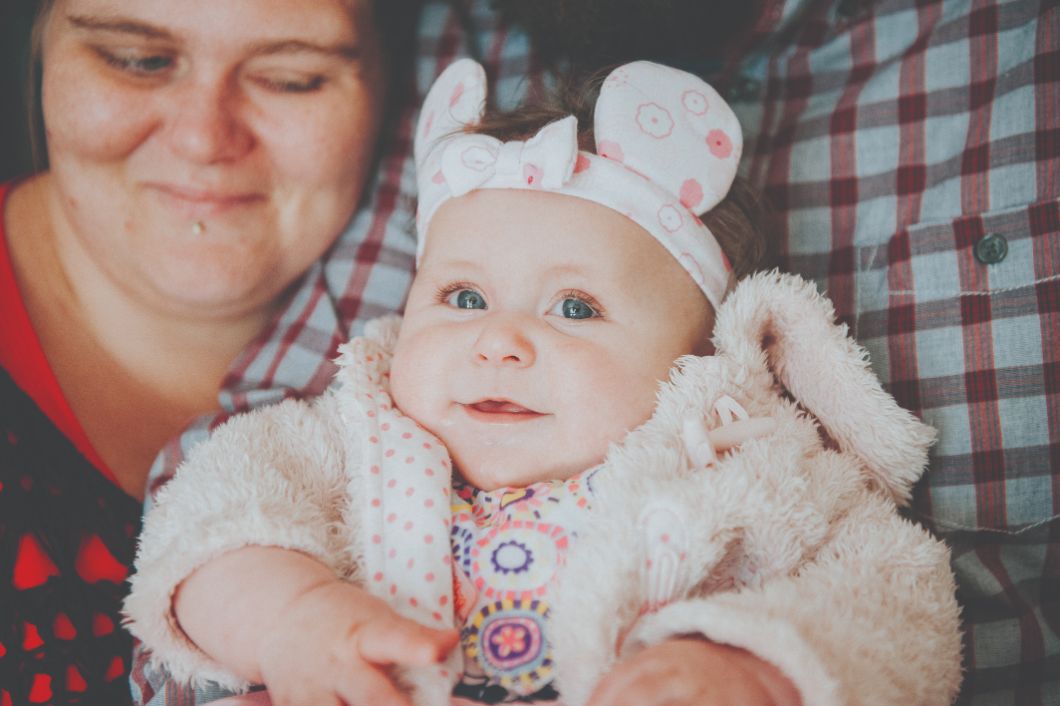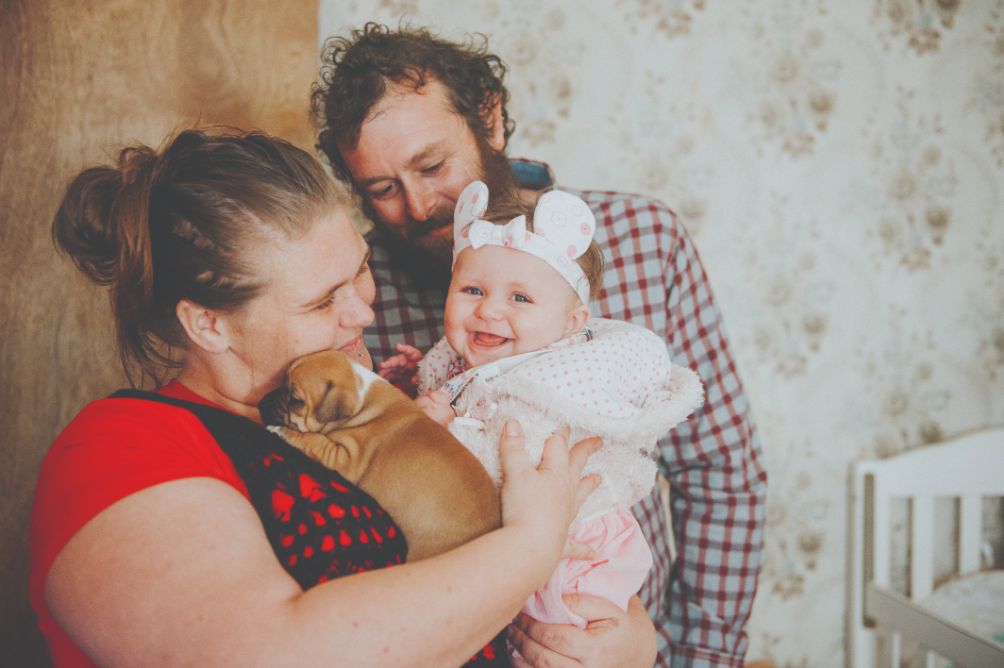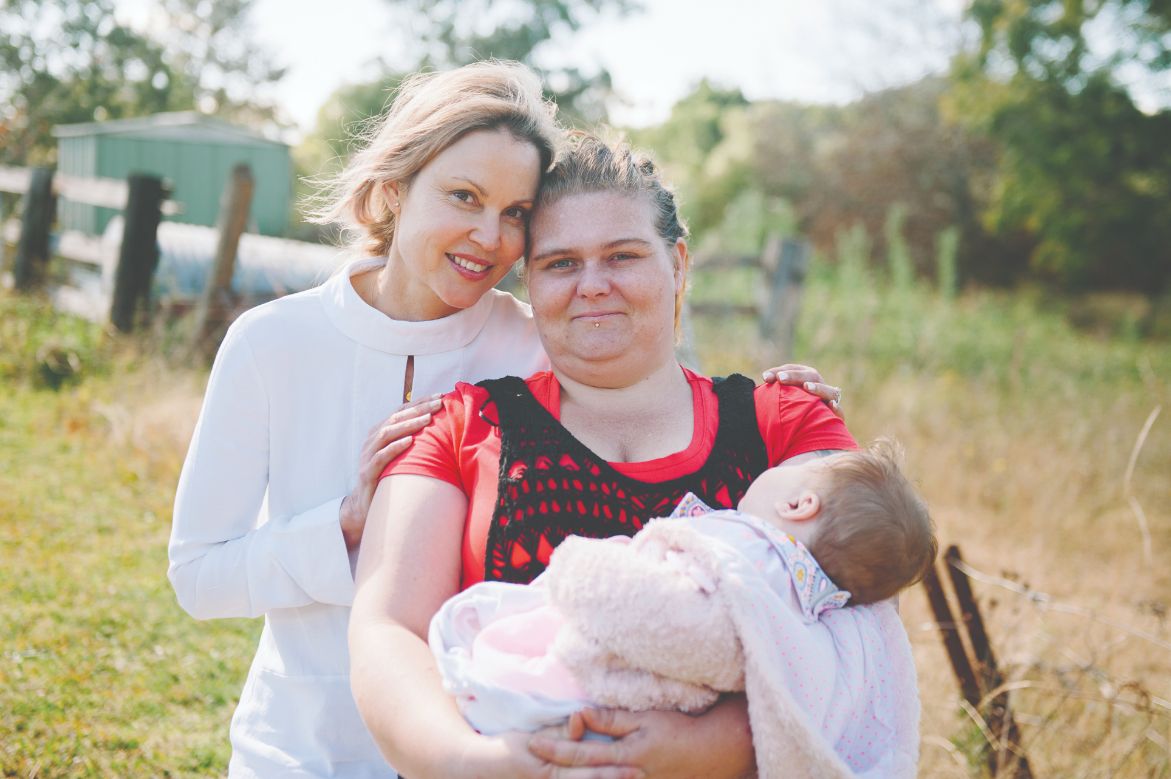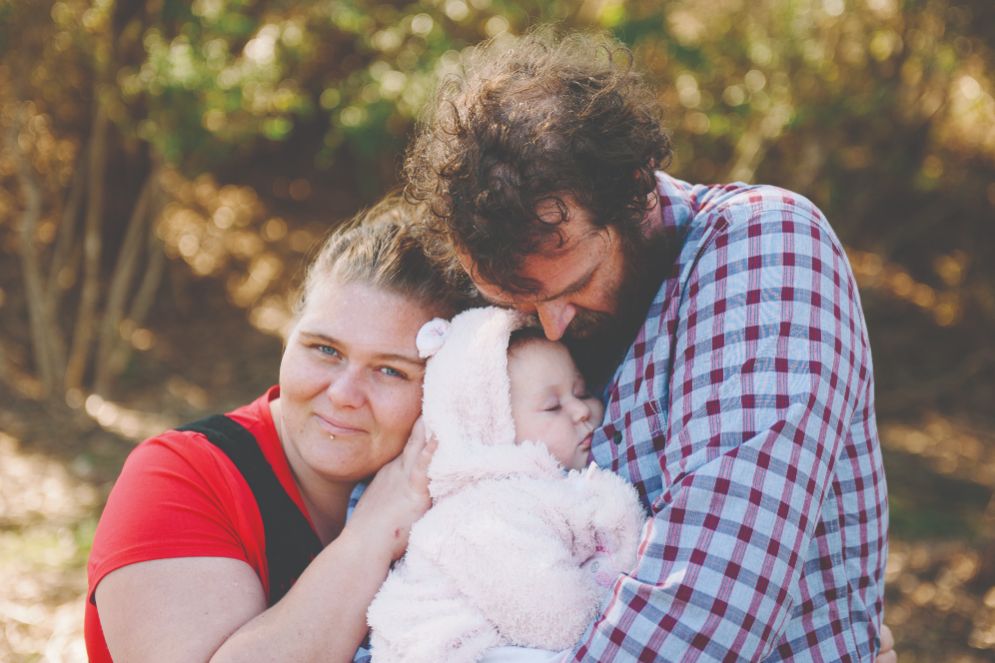Automatic language translation
Our website uses an automatic service to translate our content into different languages. These translations should be used as a guide only. See our Accessibility page for further information.

I was a teenager when I got my first job at DCJ. It was a 12 month admin traineeship and I was happy to be providing clerical support. But then I started to understand what caseworkers did and how they helped and I wanted to be one. I applied to university to get my degree. I didn’t get in straight away but I persisted and here I am now, doing what I was in awe of all those years ago.
Meeting Jessica confirms I made the right career choice. I met her in the late stages of her pregnancy. We sat across from each other at that first meeting, me ready to lay all of my worries about her drug use and mental health on the table, and Jess, sick as a dog from the pregnancy trying to show me that I had nothing to worry about. The visit was planned and Jess was ready for me. She had all of her prescriptions laid out on the table, her way of showing me she was managing, but we both knew things had spiralled out of her control a long time ago.
The last time Jess had a caseworker in her home was when DCJ took her other children away. I understood that having me there would bring this memory back with crushing force. And I knew she would be scared that I would be standing here in the future, taking this baby away from her just like her other babies had been taken. I had to respect that Jess would be guarded and give her the space to share only what she was comfortable talking about on that first visit. I knew I wouldn’t get the full story straight away. And that didn’t matter.
There would be many more visits and opportunities to learn about each other. I was clear with Jess though. I told her about all of my worries – we didn’t muck around on that. And there was a lot to be worried about.
I met Jess a few more times before she broke the bubble. She told me that something had to change, that she couldn’t go on like this. I could see the desperation in her eyes, the longing for something different. This was my opening. I knew I had to harness this opportunity and act before she started to doubt that change was possible.
I organised an appointment with drug and alcohol services straight away to see if Jess could be admitted to the detox clinic for high-risk pregnancies. When Jess asked me to come along with her I jumped at the chance. I was so relieved that the clinician had the same sense of urgency as me about helping Jess.
Before we knew it she had been admitted. She had started her journey towards a different life.
After detox, came rehabilitation. Jess was there for three months. Pregnant and separated from her partner Nigel. He could only visit a few times because of the distance. There were times when she wanted to give up, just leave and go back to what she was used to. I knew it was tough for Jess, being alone and taking on the fight of her life, but I knew she wouldn’t be able to keep her baby if she left. We spoke a lot. I praised her for being so strong and brave, listened to her frustrations, kept her focused on the end goal and reminded her of how far she had already come. She had to know that rehab wouldn’t last forever.
I was getting worried that talk wasn’t enough though. There was serious risk here and I had to use my authority wisely. I could see that Jess’ commitment to rehab was starting to waver. Other people had written Jess off and I could sense that they thought I was naive to hold such hope for her, especially in the times when Jess herself had lost hope. I knew in my heart that Jess could change but how could I put so much weight on what I saw in her when everything on paper screamed risk?
These are the thoughts that keep you up at night. You start to doubt your judgement. Group supervision and talking with my manager Chris helped. Chris encourages us to give children every chance possible to be with their parents, but she is a realist; she knows when to pull us back if a child could be hurt by our optimism. She ensured that I kept an open mind, and that my hope was backed up by real evidence of change and safety.
Together, Chris and I decided that we would talk to Jess about a Parental Responsibility Contract. Given Jess’ experience of Children’s Court, her about a legal document had to be managed sensitively. We used the contract as a support tool, not a big stick. Through courts we often make decisions about what should happen for a child, but with Parental Responsibility Contracts, caseworkers and parents make that decision together. That’s how we approached it. Together we developed the plan and together we measured progress. This was important. In the hard times, Jess had to know that she was moving forward and that I had noticed the change in her.
A beautiful, healthy baby girl was born in February. Jess welcomed Kyesha so warmly into the world. I drove to Sydney to pick them up. When the doors opened to the hospital, there was Jess with her baby in her arms, all ready to jump in the car with me and start her new life. What a car ride that was. Those few hours made all the past worry wash over me. I knew then and there that the best decision had been made for Kyesha – she was wrapped in her mother’s love and Jess was hopeful that she would be able to be the mother that she had always wanted to be.
When we arrived home, Nigel was standing on the front step waiting for us. He was smartly dressed, and had cut his hair and shaved his beard off for the occasion. You could see his pride in how he held himself. He took Jess and Kyesha in his arms and without a word, showed them safety. To Nigel’s credit he had been getting help for himself while Jess was in rehab. He went to programs and did what he had to do to stop using drugs and pay off his debts. He’s all square with the state now, which means he can get his driver’s permit back.
He’s pretty pleased about that!
Jess doesn’t take drugs now, and we now know that her mental health problems were because of the drugs so we don’t need to worry about that anymore. But my work with Jess isn’t over. I need to help her regain her confidence as a mum and a young woman. She feels the stigma and shame of her past every day. Jess has some homemade tattoos and she knows that people look at her and judge her because of them. So they are coming off. We managed to secure funding for laser tattoo removal. It was an important thing for us to do for Jess. Tattoos don’t make kids safe or unsafe but for Jess they were a constant reminder of a past life she had fought hard to leave behind. They affected her confidence and Jess needs all the confidence she can muster to achieve our next goal – having her other three children returned to her. We are on the way to making this a reality. Kyesha needs her brother and sisters around her and deserves nothing less than to be part of a whole family.

Kyesha is my fourth child and the only one that I get to tuck into bed each night. My life was a haze of drug use and sadness before she was born. I was in a rut that I didn’t know how to get out of. I didn’t dare dream of happiness.
I was smoking 60 cones a day, smoking my life away really. All that it was doing was landing me in jail and making me unwell – mentally and physically. I had been diagnosed with bipolar disorder and schizophrenia and was so sick during my pregnancy with Kyesha that I couldn’t be further than a few metres away from a bathroom. I didn’t know if I had it in me to be the mum that Kyesha needed.
I knew that between my diagnoses, my drug use and the fact that I had my other kids taken from me, I would have to fight hard to keep this one. I was nervous when I met Jennifer. I was wary for the first few visits but I soon realised I had to be upfront and honest. Jennifer hadn’t judged me so far so I figured if anyone was going to help me, it was going to be her. I took a risk and told her everything. She was upfront and honest with me about her worries. I liked that – she was gentle and caring but she didn’t stuff around. She didn’t mince her words. It was a relief to be this honest and have her tell me she still wanted to work with me to help my baby have its mum.
Within days I was sitting next to Jennifer again. This time we were in a meeting to try to get me a place at a detox centre. It was nice to have someone to support me through this. Appointments like this are scary and uncomfortable – everyone is so formal and they just ask question after question, probing you to talk about all of the things you are ashamed and embarrassed about. Having Jennifer there put me at ease. She talked when I found it hard to explain myself and she reassured me that it was safe to tell my story.
Detox was tough. But the hardest bit was rehab. It felt like it was never-ending. I was away from home and away from my partner. I really struggled at Christmas time and was ready to chuck it all in. I didn’t though. Jennifer kept me strong.
She kept me focused on my baby and kept reminding me of the progress that I had made and what I would be giving up if I didn’t keep going.
I knew Jennifer was getting more worried though as my due date got closer. She talked to me about a Parental Responsibility Contract as a way of keeping us all on track. I liked that. When I had been in court with my other children it felt like the goalposts were always shifting. To see in writing what I had to do and to know what Jennifer was going to do to help me succeed was good. It was what I needed. We worked together to figure out what should be in the plan. I knew Jennifer wasn’t asking me to do anything that I couldn’t or shouldn’t do for my baby so it I signed it without hesitation.
I’m grateful for every day I have with Kyesha. Jennifer is always telling me I’m doing a great job but once a child is taken from you, the fear of losing another never goes away. I see how people look at me and I know they are judging me. I was talking to Jennifer about this one day and I told her how I feel that my tattoos are holding me back, keeping me stuck in my old life. It’s hard to move on in your head when your body is marked by reminders of your past. She came back a few days later and told me that she could help get rid of the tattoos. I wasn’t expecting that! And I definitely wasn’t expecting her to be by my side while it happened. But there she was, once again supporting me to move on.
Thanks to Jennifer’s belief in me I am showing everyone that I can be a good mum. Kyesha is safe and loved. I’m going to be able to tuck my other kids into bed soon. That is our next goal and I can’t wait for it to happen. My kids will grow up together, in a home that isn’t always perfect, but is one that’s always filled with love and belonging.


Executive Director, Child & FamilyNSW Department of Family and Community Services
When I read ‘Fresh start’ it took me a couple of days to take all of the information in about Jennifer and Jessica’s amazing story. After thinking about it, what it came down to was hope, perseverance, determination, laser-eyed focus on the issues that needed to be addressed, as well as exceptional relationship-based practice.
One of the first things that struck me was Jennifer’s journey in becoming a caseworker. I have no doubt her career from clerical officer to caseworker has put her in a good position to help families change. Jennifer’s motivation, her tenaciousness and expertise in working with Jessica was outstanding. She focused on addressing Jessica’s immediate needs, slowly building her trust and delivering on the things she said she would. There were clear plans and achievable goals that they agreed on together.
Jessica’s story is one of sadness but also hope, and now a future with her children. Understandably Jessica took some time to trust that Jennifer was there to support her and care for her baby.
Jessica said there were times she was on the verge of giving up but Jennifer’s perseverance prevented this from happening.
Sometimes as a caseworker you need to think outside the square and the removal of the tattoos is something that may not be typical casework but made the world of difference for Jessica. The hope that Jessica now has for the restoration of her three other children is inspiring. I hope to read a story in next year’s Shining a light on good practice in NSW describing how this has been successful!
16 May 2023